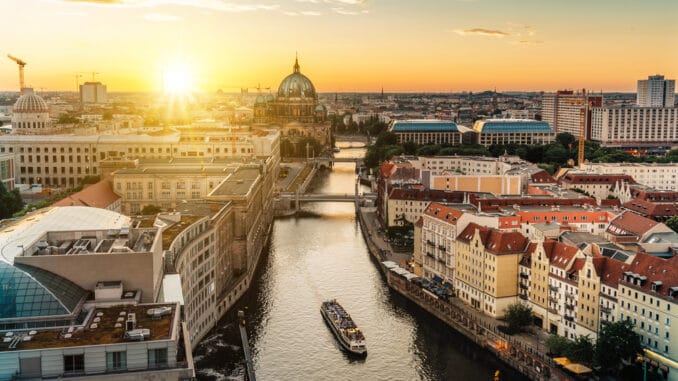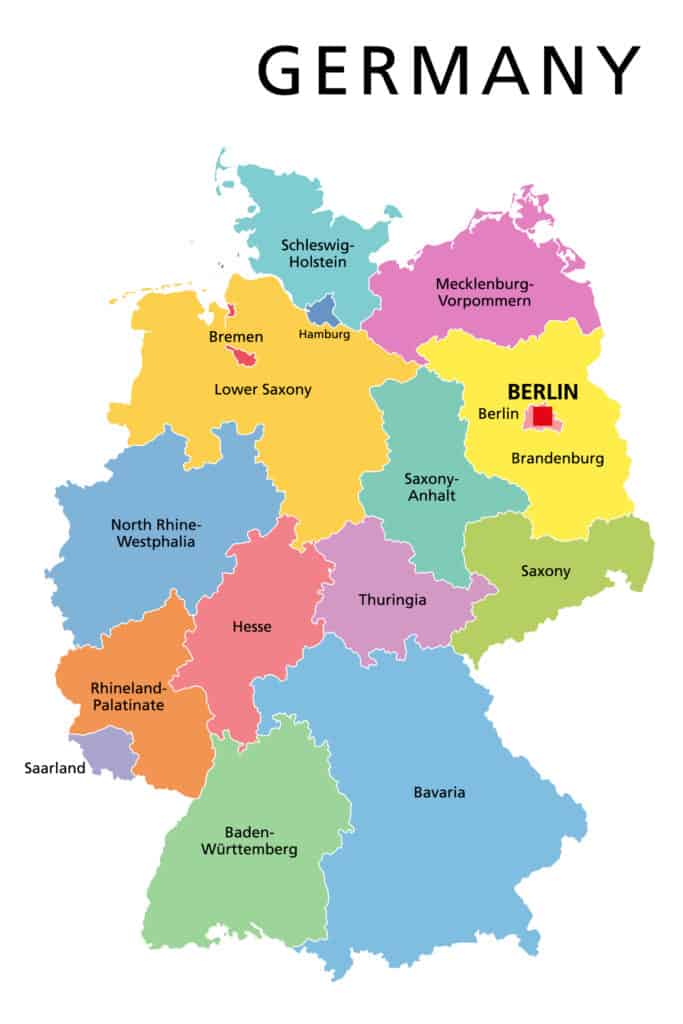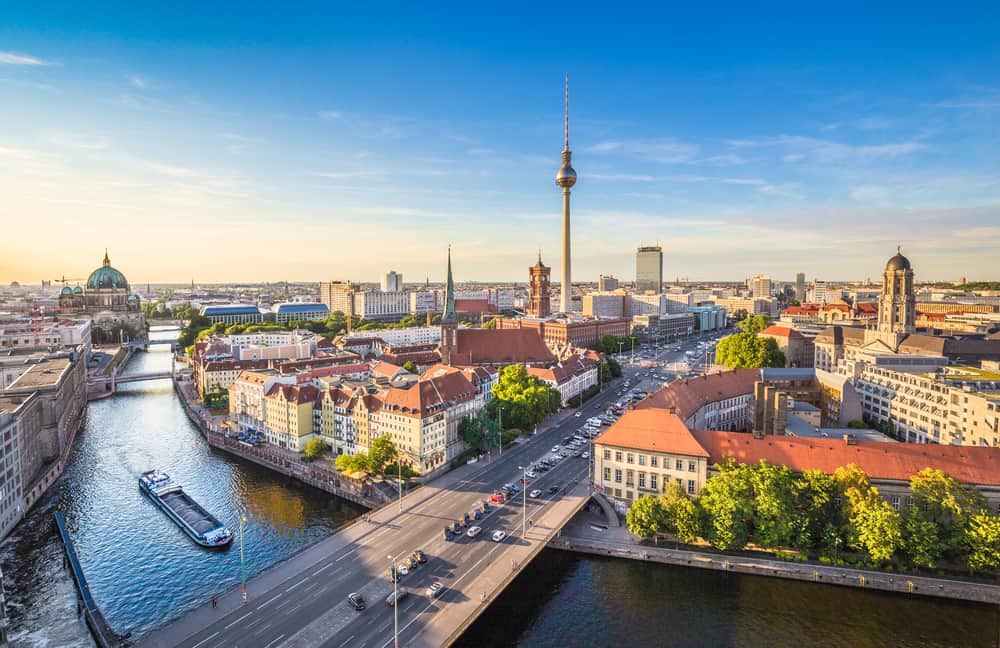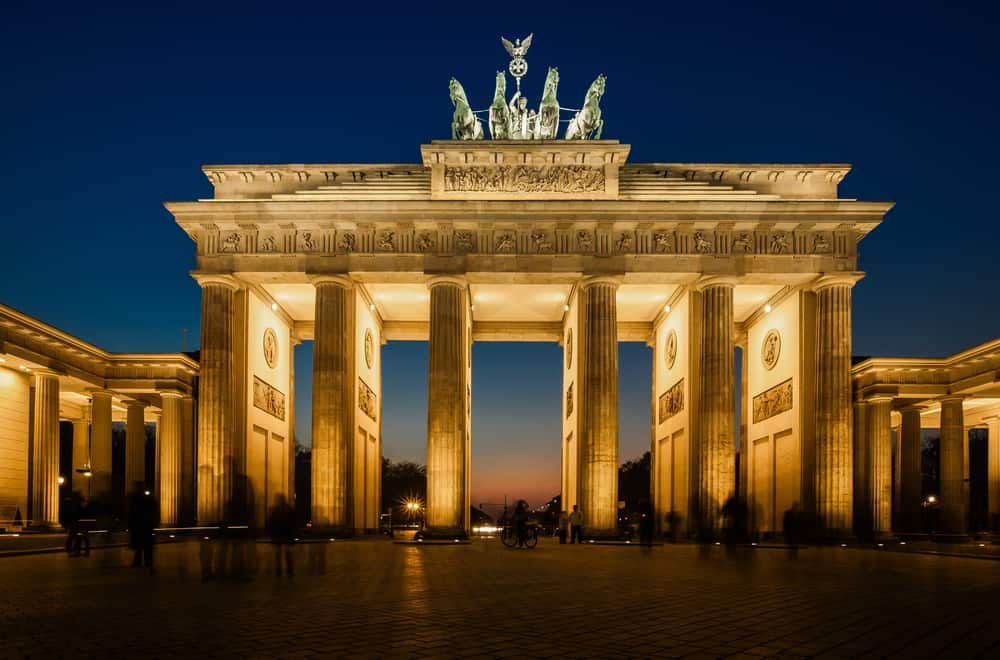
The capital of Germany is Berlin. It is the seat of political power in the country, being home to the President and the representation of the Federal States. This is where the vast majority of federal ministries are situated in Germany.
Where is the Capital of Germany Located?

Berlin rests right in the center of the North German Plain, in the valley of the Spree River, which goes right through the heart of the city. It is roughly 112 miles south of the Baltic Sea, 118 miles north of the Czech-German border, and 55 miles west of Poland.
Brief History of Berlin

Prior to 1871, Germany was not actually a single unified entity. There were many other, smaller countries in the territory that is modern Germany that were part of the Holy Roman Empire. However, in 1871, the unification of Germany occurred and the first German Reich was established.
The leading state that made up the new nation was Prussia, of which the capital was Berlin. Because Prussia was the leading state, Berlin was chosen to be the capital of the newly unified Germany as well. It remained the capital until 1945, when it was captured by the Allies at the end of World War II.
In 1949, occupied Germany was split into West and East Germany, which also divided Berlin. East Germany claimed East Berlin as its capital, while West Germany wanted Berlin to be the capital theoretically when and if the country was reunified. Until that time, West Germany selected Bonn as its capital.
When Germany was reunified in 1990, Berlin became the capital of the new Federal Republic of Germany. There was some debate on whether or not the actual seat of government should move to Berlin, but ultimately the decision was made to do so. However, some of Germany’s federal ministries still reside in Bonn.
When did Berlin become the Capital of Germany?

Berlin became the capital of Germany in 1871. Prior to this date, the country we know today as “Germany” did not exist. The physical territory Germany now occupies was home to many smaller countries, which decided to unify into one nation-state in 1871. At this time, Berlin was selected as the capital of the new nation.
Why is Berlin the Capital of Germany?
Various nations (around 25 of them) that all had their own governance joined together to form the first German empire in 1871. Some of these were kingdoms, others, simply duchies or principalities. A few were just free cities, and one was even an imperial territory. These were leftovers from the breakup of the Holy Roman Empire.
However, out of all of these political entities, the largest was by far the kingdom of Prussia, several times larger than the next biggest kingdom that was unifying, Bavaria. Because Prussia made up the vast majority of the new German nation in both landmass and population, its capital, Berlin, was selected as the capital of Germany.
Berlin had been the capital of Prussia since 1518, so it had a lot of history behind it and most of the new German nation was content with this selection. When Berlin was occupied by the Allies in 1945, it stopped being the capital of a sovereign state. As for why it was reselected as the capital of the new German nation in 1990, there are a few reasons.
German reunification was a major political process, considering the many, many years the nation had been divided between West and East. German political leaders were very keen on making the reunification as smooth as possible, and they wanted to pick a capital that would appeal to both the East and West.
Berlin was the natural choice. It was geographically well-situated, it had been the capital of Germany before, East Germany had made half of it their capital during the Cold War, and West Germany had always hoped to have Berlin be the capital again after reunification. With both sides appeased, Berlin became the capital again.
Best Places to Visit in Germany
Berlin has centuries of history behind it, so there is no shortage of great places to visit while you are there. Just be ready for a lot of traffic: Berlin is the most populous city in the European Union, after all! Keep in mind that you’ll need some euro, too: there are some free attractions in Berlin, but you’ll have to pay for the best attractions.
Academy of Arts
This art exhibit, dating all the way back to 1697, has seen a lot in its own right. Bombed in WWII, divided during the Cold War, and changing political hands countless times, the Academy of Arts is always showing a rich, unforgettable art exhibit for tourists to enjoy. If culture and art is your passion, do not leave Berlin without visiting this.
Berlin Cathedral
If gorgeous architecture is what you want to enjoy, Berlin Cathedral is an absolute must to visit. It is one of the oldest buildings still standing in the city, as it was first built as a parish church in 1465. There are more than 90 tombs with many mosaics depicting the hundreds of years of major events this church has witnessed.
The Berlin Cathedral is also home to one of the largest organs in the world, with more than 7000 pipes. The entry free is a measly four euro, making it a great place to visit even on a budget!
Museum Island
A cluster of five museums on a small island, this attraction is exactly what it sounds like. These five museums hold art, scientific discoveries, and even the private collections of old Prussian rulers. Many of them were modeled after the forums of ancient Rome. You can find amazing things from over 1000 years of human society here.
Better yet, it doesn’t cost much to enter museum island, at just 9 euro. Needless to say, this is not a place you want to miss while you are visiting Berlin.
